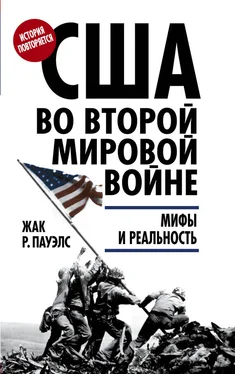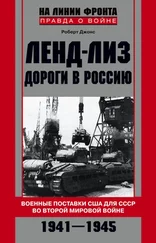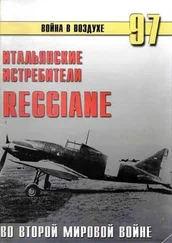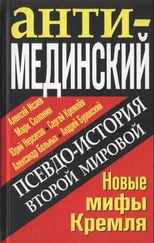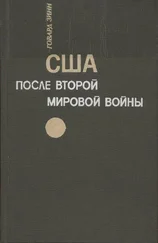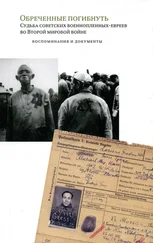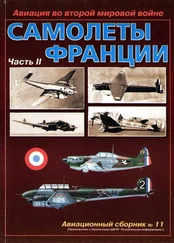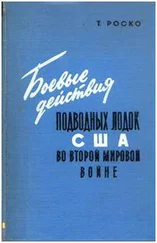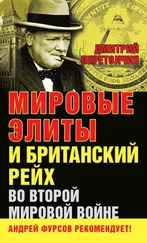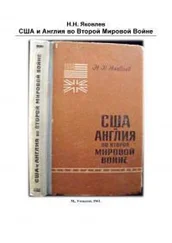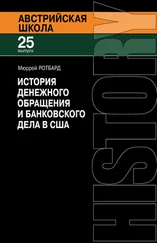Arthur Marwick, Class: Image and Reality in Britain, France and the USA since 1930, New York, 1980.
David Mayers, The Ambassadors and America’s Soviet Policy, New York and Oxford, 1995.
Laurence W. Mazzeno, “Getting the Word to Willie and Joe,” Military Review, Vol.
LXVII, No. 8, August 1987, pp. 69–82.
Thomas J. McCormick, America’s Half-Century: United States Foreign Policy in the Cold War, Baltimore and London, 1989.
Alexander McKee, Dresden 1945: The Devil’s Tinderbox, London, 1982.
Henry Cord Meyer, Five Images of Germany: Half a Century of American Views on German History, Washington, 1960.
James V. Milano and Patrick Brogan, Soldiers, Spies and the Rat Line: America’s Undeclared War Against the Soviets, Washington and London, 1995.
James R. Millar, “Conclusion: Impact and Aftermath of World War II,” in Susan J. Linz (ed.), The Impact of World War II on the Soviet Union, Towota, NJ, 1985, pp. 283—91.
The Soviet Economic Experiment, Urbana, IL, 1990.
C. Wright Mills, The Power Elite, New York, 1956.
Robert K. Murray, Red Scare: A Study of National Hysteria, 1919–1920, New York, 1964.
Williamson Murray and Allan R. Millet (eds.), Military Innovation in the Interwar Years, Cambridge, 1996.
Derek Nelson, The Posters That Won The War, Osceola, WI, 1991.
“No Canadian Scandal,” letter published in The Globe and Mail, Toronto, October 4, 1997.
David W. Noble, David A. Horowitz, and Peter N. Carroll, Twentieth Century Limited: A History of Recent America, Boston, 1980.
Arnold A. Offner, American Appeasement: United States Foreign Policy and Germany, 1933–1938, Cambridge, MA, 1969.
“American Appeasement, 1933–1938,” in Arnold Offner (ed.), America and the Origins of World War II, 1933–1941, Boston, 1971, pp. 54–76.
“The United States and National Socialist Germany,” in Wolfgang J.
Mommsen and Lothar Kettenacker (eds.), The Fascist Challenge and the Policy of Appeasement, London, 1983, pp. 413—27.
“Harry S Truman as Parochial Nationalist,” in Thomas G. Paterson and
Robert J. McMahon (eds.), The Origins of the Cold War, 3rd edition, Lexington, MA, and Toronto, 1991, pp. 49–60.
David O’Keefe, One Day in August: The Untold Story behind Canada’s Tragedy at Dieppe, Toronto, 2013.
Mancur Olson, The Logic of Collective Action: Public Goods and the Theory of Interest Groups, Cambridge, MA, and London, 1965.
William L. O’Neill, A Democracy at War: America’s Fight at Home and Abroad in World War II, New York, 1993.
Torsten Oppelland, “Der lange Weg in den Krieg (1900–1918),” in Klaus Larres and Torsten Oppelland (ed.), Deutschland und die USA im 20. Jahrhundert:
Geschichte der politischen Beziehungen, Darmstadt, 1997, pp. 1—30.
Richard Overy, Why the Allies Won, London, 1995.
Russia’s War, London, 1997.
Michael Parenti, The Anti-Communist Impulse, New York, 1969.
Power and the Powerless, New York, 1978.
The Sword and the Dollar: Imperialism, Revolution, and the Arms Race, New York, 1989.
Against Empire, San Francisco, 1995 (1995a).
Democracy for the Few, 6th edition, New York, 1995 (1995b).
Dirty Truths: Reflections on Politics, Media, Ideology, Conspiracy, Ethnic Life and Class Power, San Francisco, 1996.
Blackshirts and Reds: Rational Fascism and the Overthrow of Communism, San Francisco, 1997.
History as Mystery, San Francisco, 1999.
Thomas G. Paterson, “Exaggerations of the Soviet Threat,” in Thomas G. Paterson and Robert J. McMahon (eds.), The Origins of the Cold War, 3rd edition, Lexington, MA, and Toronto, 1991, pp. 203—12.
Thomas G. Paterson, J. Garry Clifford, and Kenneth J. Hagan, American Foreign Policy: A History / 1900 to Present, Lexington, MA, and Toronto, 1991.
Jacques R. Pauwels, “Hitler’s Failed Blitzkrieg against the Soviet Union. The ‘Battle of Moscow’ and Stalingrad: Turning Point of World War II,” Global Research, December 6, 2011, globalresearch.ca/index.php?context=va&aid=28059.
Big business avec Hitler, Brussels, 2013.
De Groote Klassenoorlog 1914–1918, Berchem, 2014.
Mark Pendergrast, For God, Country, and Coca-Cola: The Unauthorized History of the Great American Soft Drink and the Company That Makes It, New York, 1993.
Clive Ponting, Armageddon: The Second World War, London, 1995.
Walter S. Poole, “From Conciliation to Containment: The Joint Chiefs of Staff and the Coming of the Cold War, 1945–1946,” Military Affairs, Vol. XLII, No. 1, February 1978, pp. 12–15.
Robert C. Puth, American Economic History, 2nd edition, Fort Worth, TX, 1988.
Simon Reich, The Fruits of Fascism: Postwar Prosperity in Historical Perspective, Ithaca, NY, and London, 1990.
“The Ford Motor Company and the Third Reich,” Dimensions: A Journal of Holocaust Studies, Vol. 13, No. 2, December 1999, pp. 15–17.
Simon Reich and Lawrence Dowler, Research Findings About Ford-Werke Under the Nazi Regime, Dearborn, MI, 2001.
David Reynolds, Rich Relations: The American Occupation of Britain, 1942–1945, New York, 1995.
David Reynolds, Warren F. Kimball, and A. O. Chubarian (eds.), Allies at War: The Soviet, American, and British Experience, 1939–1945, New York, 1994.
Geoffrey Roberts, Stalin’s Wars from World War to Cold War, 1939–1953, New Haven, CT, and London, 2006.
George H. Roeder, Jr., The Censored War: American Visual Experience during World War Two, New Haven, CT, and London, 1993.
Steven T. Ross, American War Plans 1941–1945: The Test of Battle, London and Portland, OR, 1997.
Mario Rossi, “United States Military Authorities and Free France, 1942–1944,” The Journal of Military History, Vol. 61, No. 1, January 1997, pp. 49–64.
Floyd Rudmin, “Secret War Plans and the Malady of American Militarism,”
Counterpunch, 13:1, February 17–19, 2006, pp. 4–6, www.counterpunch.org/2006/02/17/secret-war-plans-and-the-malady-of-american-militarism.
Keith Sainsbury, Churchill and Roosevelt at War: The War They Fought and the Peace They Hoped to Make, New York, 1994.
Anthony Sampson, The Sovereign State of ITT, New York, 1973.
The Seven Sisters: The Great Oil Companies and the World They Made, New York, 1975.
Michael Sayers and Albert E. Kahn, The Plot against the Peace: A Warning to the Nation! New York, 1945.
Ronald Schaffer, “American Military Ethics in World War II: The Bombing of German Civilians,” The Journal of Military History, Vol. 67, No. 2, September 1980, pp. 318—34.
David F. Schmitz, “‘A Fine Young Revolution’: The United States and the Fascist Revolution in Italy, 1919–1925,” Radical History Review, No. 33, September 1985, pp. 117—38.
Thank God They’re on Our Side: The United States and Right-Wing Dictatorships, 1921–1965, Chapel Hill, NC, and London, 1999.
Michael S. Sherry, The Rise of American Air Power: The Creation of Armageddon, New Haven, CT, and London, 1987.
In the Shadow of War: The United States Since the 1930s, New Haven, CT, and London, 1995.
Michael S. Shull and David E. Wilt, Doing Their Bit: Wartime American Animated Short Films, 1939–1945, Jefferson, NC, and London, 1987.
Ken Silverstein, “Ford and the Führer,” The Nation, January 24, 2000, pp. 11–16.
Christopher Simpson, Blowback: The First Full Account of America’s Recruitment of Nazis, and Its Disastrous Effect on our Domestic and Foreign Policy, New York, 1988.
The Splendid Blond Beast: Money, Law, and Genocide in the Twentieth Century, New York, 1993.
Nikolai V. Sivachev and Nikolai N. Yakovlev, Russia and the United States, Chicago and London, 1979.
N. Sivachyov and E. Yazkov, History of the USA Since World War I, Moscow, 1976.
Читать дальше
Конец ознакомительного отрывка
Купить книгу
